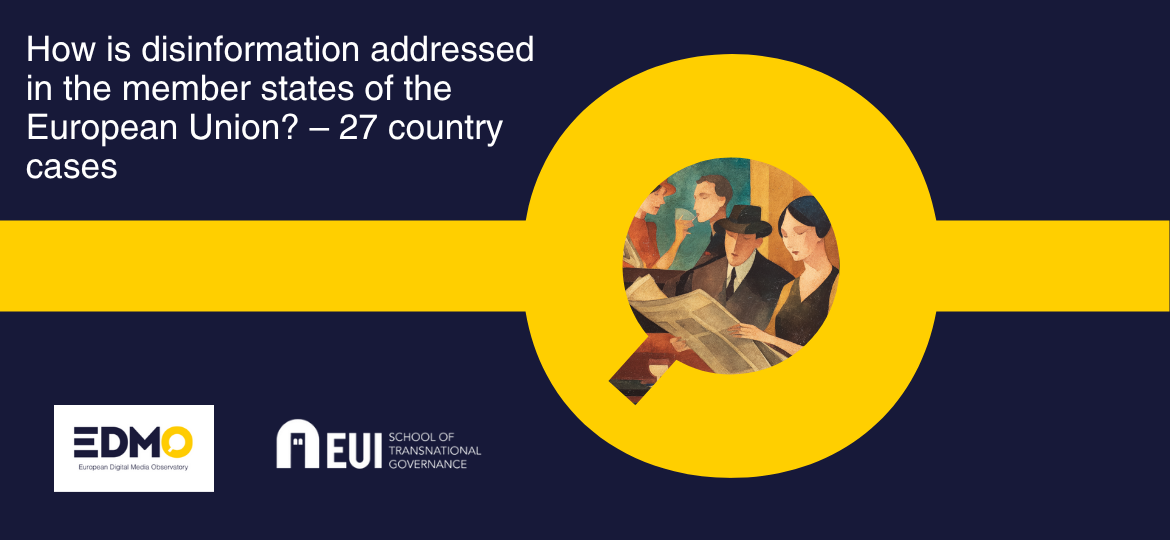
The report is composed of 27 cases – the EU member states – and describes how national governments and policymakers address disinformation. The case studies identify legislative and non-legislative approaches, strategies, policy documents, as well as proposed laws and policies, complemented with information about certain structural conditions that can impact countries’ measures on disinformation.
The aim of the report is to better understand what kinds of policy tools are commonly utilised in EU member states to create a safer information environment and to foster greater societal resilience – complementing an already institutionalised European approach on disinformation. Moreover, it aims to identify dominant approaches and to help policymakers understand what mix of policies can be preferable in certain contexts. The report presents selected findings concerning countries, as gathered from available reports and policy documents reviewed by EDMO Hubs, and does not necessarily reflect the views of EDMO or intend to provide a comprehensive picture of legislative or policy landscape.
Authors: Konrad Bleyer-Simon, Minna Aslama Horowitz, Madalina Botan, Mato Brautovic, Elda Brogi, Ianis Bucholtz, Eileen Culloty, Beata Gavurova, Anja Grabovac, Socrates Ioakem, Jan Erik Kermer, Keith Kiely, Pantelitsa Leonidou, Megan Mallia, José Moreno, Iva Nenadić, Miguel Paisana, Marie Palmer, Urbano Reviglio, Raul Magallon Rosa, Nikolas Salamanos, Ramón Salaverría Aliaga, Maria Giovanna Sessa, Thanos Sitistas, Jana Soukupová, Sten Torpan, Teresa Weikmann
Beáta Gavurová and Jana Soukupová participated in the study on behalf of CEDMO.
Edited and coordinated by Konrad Bleyer-Simon
*The European Digital Media Observatory has received funding from the European Union under contract number LC-01935415.

